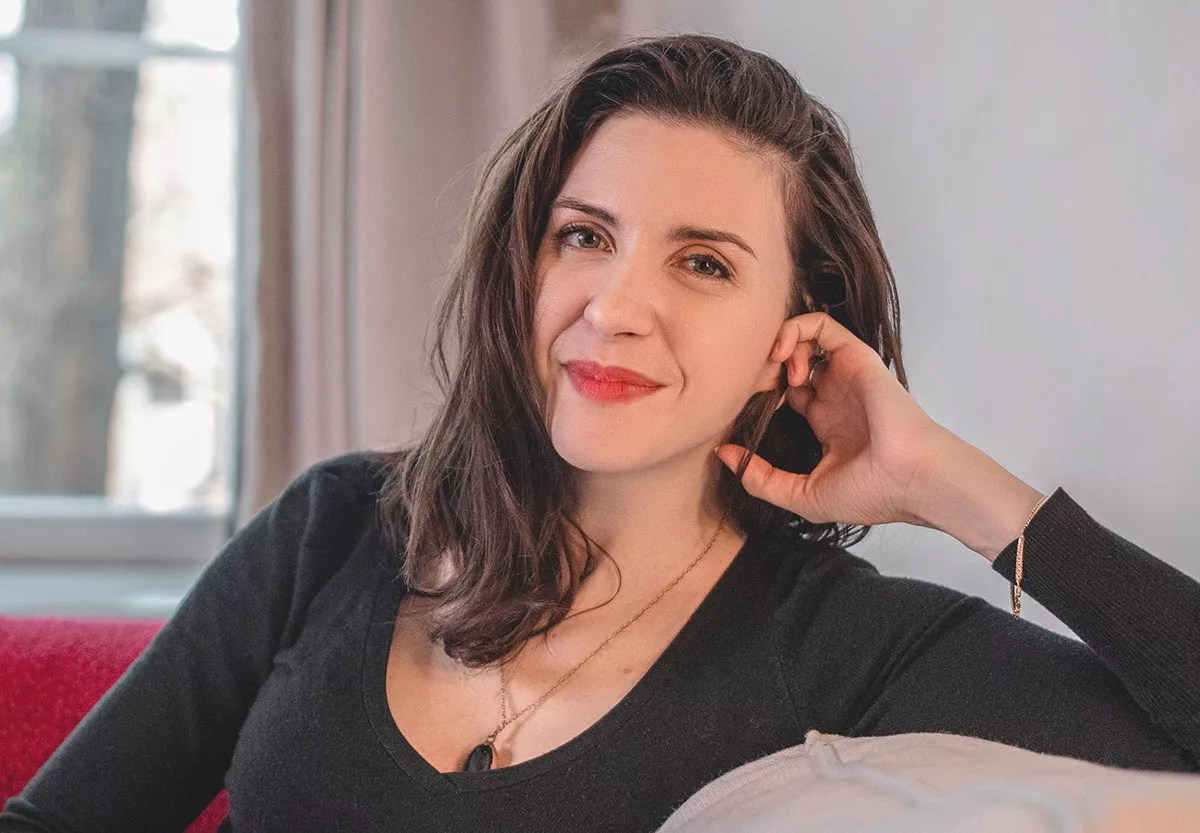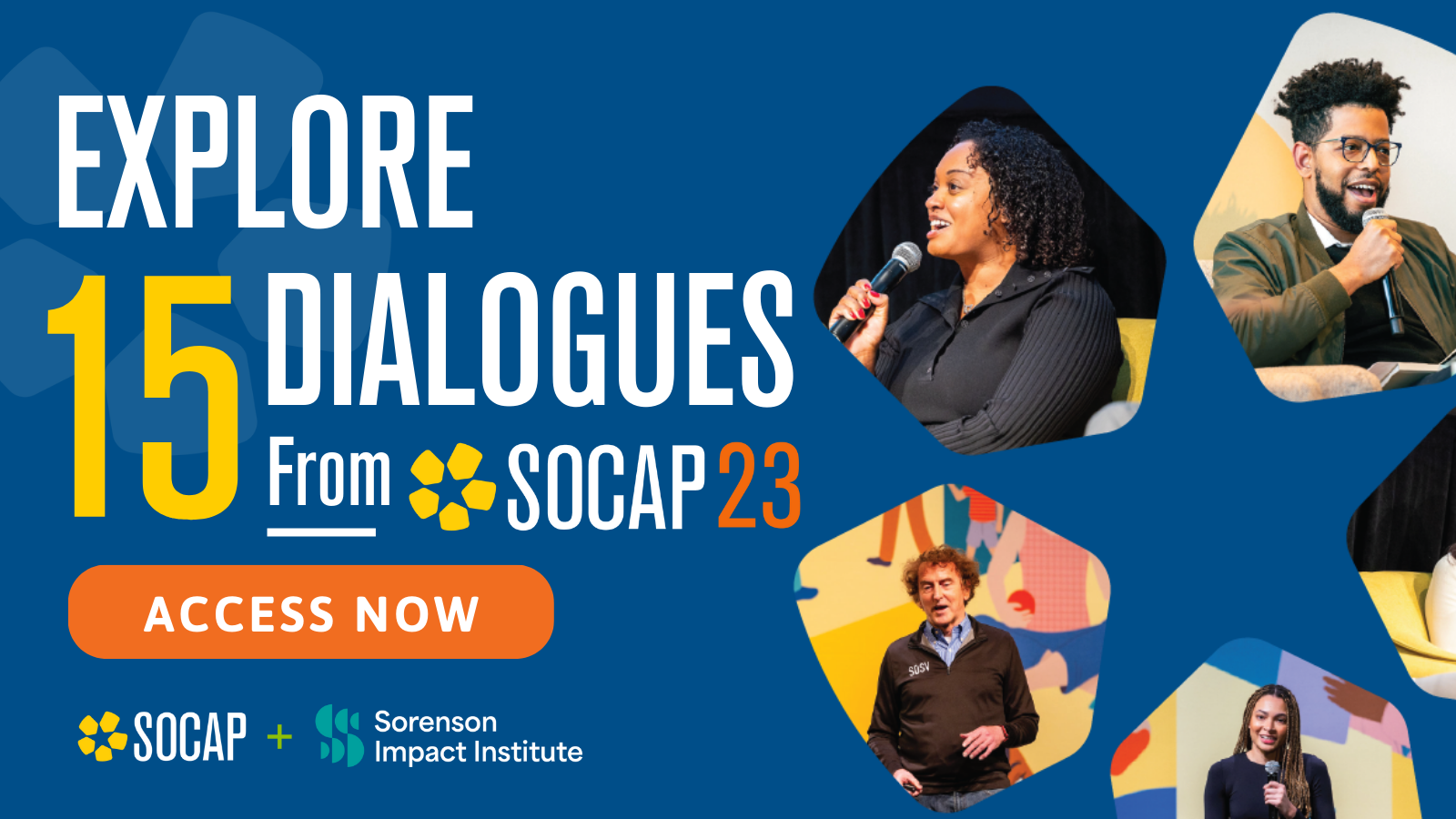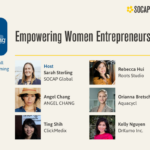Photo by Nathaly Molina
This article is part of a series, The Wisdom of Women: Bold Insights From World Change.
“Be fierce, but flexible.”
— Danielle LaPorte
world
n.
everyone, everybody, each and every one, people, mankind, humankind, humanity, people everywhere, the world at large, the public, the general public
changing
v.
alter, make different, adjust, make adjustments to, amend, improve, modify, transform, make to become different entirely
****
Welcome to the ethos of Cecile Gauthier and Lime Agency. On its face, Lime Agency is a marketing consulting and design agency helping companies grow awareness, sales, and impact through highly intentional communication campaigns and strategies, started by three friends and colleagues in 2015. At its soul and in practice, they are so much more than that; they are transforming people everywhere into something entirely different.
- They were the first Certified Women-Owned Business in Singapore.
- They have a plan to hire at-risk youth and ex-offenders.
- They speak up and speak out about the state of the industry they are in and the state of social enterprise.
- They have donated over $800,000 in services social enterprises and nonprofits.
- They are launching a new program that answers the call for affordable and fast design that is still highly qualitative, while tackling issues of digital waste in the design industry.
I’ve written other places about the need for more smaller-sized companies to adopt the All In Framework. Briefly, it goes like this: Start with Purpose/Plan/Culture —> Collaboration —> Advocacy. That’s exactly what Gauthier and the team at Lime Agency did and are continuing to do.
After connecting over an Instagram post, Gauthier and I started chatting. Once I got to know her, it was a given that I would want to feature her and the work she is doing in this series. What follows are some highlights from our conversation — Gauthier’s top five tips for using any business to change the world.
1. You have to make profits, make relationships, and make change.
I started being passionate about social enterprise because I felt like charities just really weren’t working out. The “business model” relies on people giving cash out, for free — cash many people don’t have. And it involves an overworked, underpaid workforce suffering from burnout, which leads to inconsistency and high turnover. It also many times emphasizes savings rather than impact and tends to come from a place of scarcity rather than abundance.
In contrast, social enterprise gives consumers and clients the opportunity to purchase something (they were going to buy anyway) from companies that are having a positive impact on the society, the environment, and the world at large. In its best form, this model makes each dollar count towards a better world while ensuring that everybody involved in the process gets fair wages and a positive work-life environment.
In order for this model to work, the social enterprise has to be a business, which requires efficient sales and profit mechanics. If you aren’t making money, you can’t have impact. The more money you make, the greater your impact. You can pay people fairly, use more eco conscious methods, and support causes you believe in.
It should be understood by now, yet I still see too many social entrepreneurs with business models that won’t be able to support their cause in the long run, or worse, people/clients who assume that because we/you have a social mission, you should do things for free, or cheaper. We need to acknowledge that it costs money to have the impact we want and that we are highly skilled people doing amazingly talented things.
2. You have to understand how your purpose connects to your product or service.
When you work in advertising, marketing, or communications, you can find yourself wondering what your contribution to the world is. This is true for any industry that doesn’t have an overt social-good mission. And advertising (like many others) has a long history of being the opposite of social good. Having purpose and being clear on it — knowing that the products and services you are selling, promoting, and supporting are having a positive influence on the world — makes all the difference.
It was our intention from day one to not only give purpose and meaning to our work, but to also be part of building a world where consumers had the choice to buy from companies that are beneficial to this world in every sense. We do that by leading by example — showing that doing good is good business. We do that by empowering other social entrepreneurs to turn an idea into a solid business. We are working to create a world where we have options and can live abundant lives — all of us. Knowing that’s the legacy we want to leave helps us make decisions about what we will sell and who we will work with.
3. You have to be open to creating what the world needs.
As the years have gone by, we have come to the conclusion that sometimes what the social enterprises we were serving needed the most was knowledge. Many times social-good businesses or social enterprises are started by people who wear their hearts on their sleeves. They have fantastic ideas and fabulous intentions, but business is ruthless, and they lack the necessary knowledge to succeed.
They don’t know how to set objectives. They don’t know how to plan a marketing campaign. They don’t know the first thing about social media or the importance of branding their company right. Very often they don’t have much budget, so they need to do these things themselves, and don’t know where to begin. We want to help. We have been conducting consultation sessions, doing workshops, and coaching businesses through difficult patches, and provided mentoring for even more startups and entrepreneurs, for a while now. After a great deal of discussion and feedback, we’ve come to realise that this is where we have been able to provide the greatest value to our clients.
We are expanding our services to create a complete digital resource center for entrepreneurs that will help them from ideation to market implementation with off-the-shelf branding kits, digital workshops, consultation, and mentoring.
If we had ignored this realization or decided that we were only going to do branding and marketing, we would have missed out on a great opportunity to provide more services to our clients and to have a greater impact on the world. So many companies launch to do one thing and aren’t open to re-examining that role or expanding it — or even scrapping it — that they could be missing out on great opportunities.
4. You have to let go of guilt and stop selling yourself short.
If you want to have a high impact, want to help communities for a LONG time, want to give people the chance to contribute to society with every dollar they spend, then you have to build a business model that won’t leave you struggling. When we feel guilty for what we charge or we undervalue our worth, we end up struggling to make a living and resenting the work we are doing. Being a social business is about being sustainable in every sense of the word: humanly, environmentally, and financially.
Letting go of the guilt is a big part of this, because once you do, you can feel confident in what you are charging. Confidence allows you to tell people what your product or services cost with no hesitation. It also allows you the freed up brain space to think about creative ways to help people who can’t afford you but you want to support.
5. You have to distinguish between real external gender barriers and internal barriers that you can remove.
Being a woman motivates the work I am doing and it can be an obstacle — in French, we say “un moteur et un frein” — an engine and a break. There are definitely times when I have not gotten contracts because the person I was talking to was too busy mansplaining to me to listen to why I was the better choice. There were also times when I have felt like I was never going to make it because I didn’t dare negotiate or ask for a better rate — a mental block imposed by society and that, unfortunately, many women know about. Only one of these is something I can’t control.
I remember vividly the day I realized men and women were treated differently in the world. I was a very little girl, and it enraged me. I was determined to do whatever it took to prove that I could make it anyway — to not be part of the status quo. This fired me up, but it also pained me. I love wearing high heels and makeup, and people would tell me that no one was going to take me seriously. But when I tried to go against this, I didn’t feel like myself. Once I came to terms with who I am and accepted my more feminine management style, I became grateful for everything that being a woman has helped me accomplish.
As women, we face a lot of obstacles. We have to overcome a lot of stereotypes. We have to know when the things we are mad about are things that are truly out of our control or if they are decisions we have made or stories we believe. We may not be able to stop one man from spending a whole meeting telling us how much more he knows than us, and we can work to change the conversation around women and business and how much they should get paid and how they ARE good at negotiating. We may not be able to stop someone from refusing to take us seriously because of our makeup or shoes, but we can work to educate the public on all the different ways very smart women look and dress and speak.
We can also share our wisdom with as many women as we can and encourage each other to do the work to get comfortable being exactly who we are.
Barbara Stanny is often quoted as saying, “I saw that six-figure women have two specific types of support that underearners seem to lack: 1.) true believers, people who recognize their potential and offer encouragement, and 2.) way-showers, people who provide the map and prove that success is possible.”
I have no doubt that Gauthier and Lime Agency provide both of these to many entrepreneurs and will continue to do so.
See the rest of this series at The Wisdom of Women: Bold Insights From World Change.







